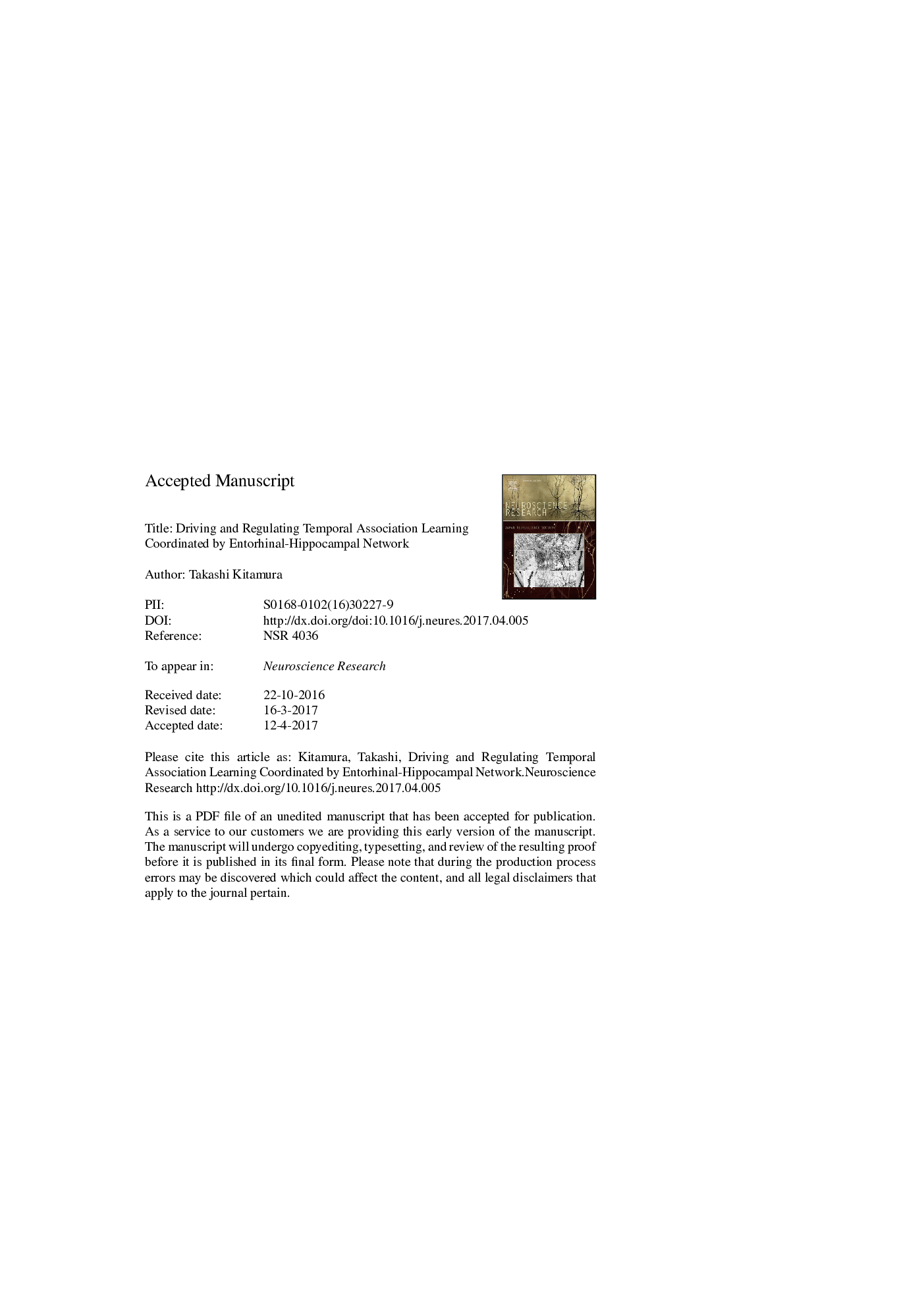| Article ID | Journal | Published Year | Pages | File Type |
|---|---|---|---|---|
| 5739041 | Neuroscience Research | 2017 | 17 Pages |
Abstract
Episodic memories shape future behaviour and by aiding adaptive behaviour, are therefore important for survival in nature. Entorhinal cortex (EC)-hippocampal (HPC) networks have a crucial role in the formation of episodic memory, which consists of associations of space, objects, individuals and time. Neural circuits have been identified in the EC-HPC networks that provide spatial, contextual and object information. However, the specific neural circuits that allow animals to associate two temporally segregated events, called temporal association learning, are still nebulous. In this review, I will review recent experimental evidence concerning the role of the EC in temporal association learning, with an emphasis on the neural circuits functioning to drive and regulate the temporal associations between events, and focusing on the trace fear conditioning paradigm in rodents. Then, I will discuss hippocampal activity during the trace periods that may bridge the temporal gap in memory for discontinuous events. Finally, I examine the role of the prefrontal cortex as a central executive system to track and extract predictive relationships between events by the coordination of the EC-HPC network.
Keywords
Related Topics
Life Sciences
Neuroscience
Neuroscience (General)
Authors
Takashi Kitamura,
